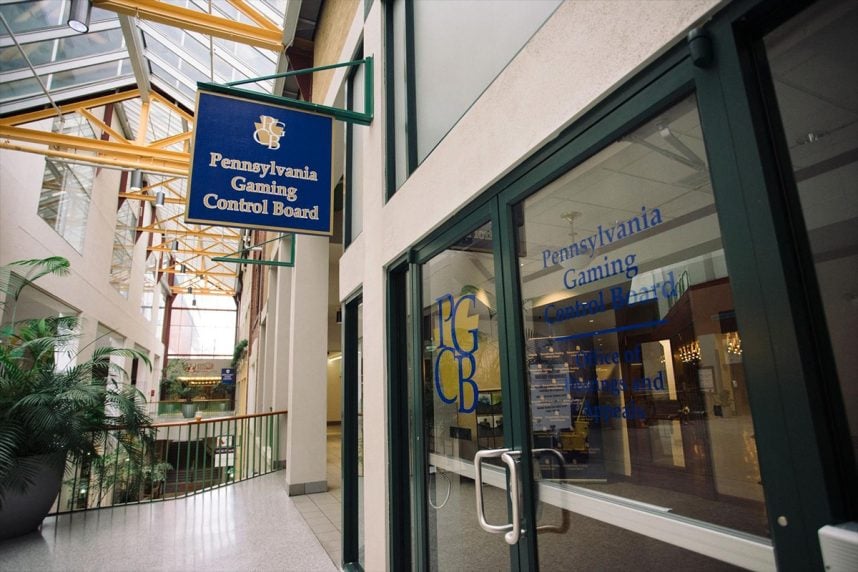Pennsylvania Gaming Control Board Clarifies Category 4 Casino Bidding Rules
Posted on: April 21, 2023, 12:25h.
Last updated on: April 21, 2023, 11:49h.
The Pennsylvania Gaming Control Board (PGCB) remains engulfed in a legal dispute over the Category 4 casino license it awarded in January to SC Gaming OpCo, LLC.

SC Gaming OpCo is an entity controlled by Pennsylvania businessman Ira Lubert. A Penn State alumnus and former university trustee, Lubert has partnered with the Bally’s Corporation to bring a casino to State College less than five miles away from Penn State University’s main campus.
Cat. 4 casinos were authorized through the state’s 2017 gaming expansion package. Each Cat. 4 casino, often referred to as a “mini-casino” or “satellite casino,” is afforded up to 750 slots and an initial allotment of 30 table games, the latter requiring an additional $2.5 million fee. After a year in operation, Cat. 4 table game casinos are allowed to add another 10 tables.
The Cat. 4 opportunities were initially made available only for entities possessing a brick-and-mortar slot concession in the commonwealth. After the bidding stalled in 2020, the PGCB welcomed individual investors in slots licenses to bid.
Lubert was the high bidder during the state’s September 2020 Cat. 4 auction round with a $10,000,101 submission. Lubert selected the former Macy’s department store at the Nittany Mall for his casino project. The Nittany Mall is within College Township, which didn’t opt out of the Cat. 4 consideration.
Legal Confusion
Soon after Lubert secured his Cat. 4 license for College Township, attorneys with The Cordish Companies levied allegations that he violated the PGCB’s bidding rules for the mini-casinos. Cordish operates Live! Casino & Hotel Philadelphia and Live! Casino Pittsburgh in Westmoreland, the latter being a Cat. 4 property.
Cordish contends in an ongoing legal case that Lubert fielded investors and financiers for his bid before making the $10 million offer.
Cordish’s lawsuit argues that the winning bidder was required to submit the license fee on their own. Since Lubert had allegedly orchestrated an investment group before the bid, Cordish’s legal team claims the PGCB shouldn’t have even considered his September 2020 tender.
Lubert didn’t pay the entire winning bid to the Board himself, as required by … the Gaming Act,” read Cordish’s appeal of the PGCB awarding Lubert’s SC Gaming OpCo a Cat. 4 permit.
Newly disclosed filings from the PGCB related to the Bally’s Nittany Mall casino project suggest Lubert’s finances were not unknown. The state gaming agency has been aware all along that the $10 million the state agency received from Lubert within two days of the September 2020 auction wasn’t only Lubert’s cash. In the legal documents, officials with the PGCB repeatedly refer to Lubert as having “funding.”
It is admitted that Mr. Lubert had other sources of funding for the bid, though Mr. Lubert paid the bid himself via a wire transfer from his personal bank account,” PGCB counsel wrote in response to Cordish’s petition for review.
Casino.org sought an explanation from the PGCB on the matter and was told that there’s been some confusion around how the winning bid must be paid to the state. The state’s legal team said it is the board’s position that the Gaming Act allows bids and projects to have financial backers, so long as the funds used are subject to clear agreements and that the investors involved are vetted.
It is the position of the Board that the Act provides no explicit restrictions on how a winning bidder funds the winning bid, with the caveat that the source of any such funds used are always part of the pre-licensure investigation and can (and often times will) result in the licensure of financial backers as principals to the project,” a brief from the PGCB previously filed in the case explained.
“Nothing in the Gaming Act mandates the winning bidder in a Category 4 auction to use his personal funds — or a loan obtained by him, personally — to pay the winning bid amount,” the brief added.
Gaming Act Language
The Gaming Act indeed says nothing about a Cat. 4 high bidder being required to pay the bid alone.
Under Section 12.1 of the Gaming Act — Cat. 4 “Auction Procedures” — the law reads, “The winning bidder shall pay to the Board the bid amount within two business days following the auction. Payment shall be by cashier’s check, certified check, or any other method acceptable to the Board.”
And under “Financial Backer Information,” the Gaming Act reads, “The Board shall require an applicant for a terminal operator license to produce the information, documentation, and assurances as may be necessary to establish by clear and convincing evidence the integrity of all financial backers, institutional investors, investors, mortgagees, bondholders, and holders of indentures, notes, or other evidence of indebtedness, either in effect or proposed.”
Related News Articles
Most Popular
Mirage Las Vegas Demolition to Start Next Week, Atrium a Goner
Where All the Mirage Relics Will Go
Most Commented
-
Bally’s Facing Five Months of Daily Demolition for Chicago Casino
— June 18, 2024 — 12 Comments -
Chicago Pension Mess Highlights Need for Bally’s Casino
— July 2, 2024 — 5 Comments
















Last Comments ( 2 )
The PGCB's interpretation appears to indicate that any casino operator or interested party in Pennsylvania has the right to act as a straw buyer for parties who would otherwise be ineligible to bid for a casino license - and if straw buyers are allowed, then anyone from anywhere can bid on a casino license in Pennsylvania as long as they can find a straw buyer to place the bid on their behalf. This interpretation effectively nullifies the state legislature's intent in explicitly limiting those who could bid on a category 4 casino license to only existing casino operators and interested parties who already have an ownership interest in a Pennsylvania casino. It will be interesting to see if the Court will accept this rationalization for the PGCB's unilateral usurpation of the legislature's authority.
Bottom line, that casino planned for State College won't be happening. Nothing more to see here, move along smartly.